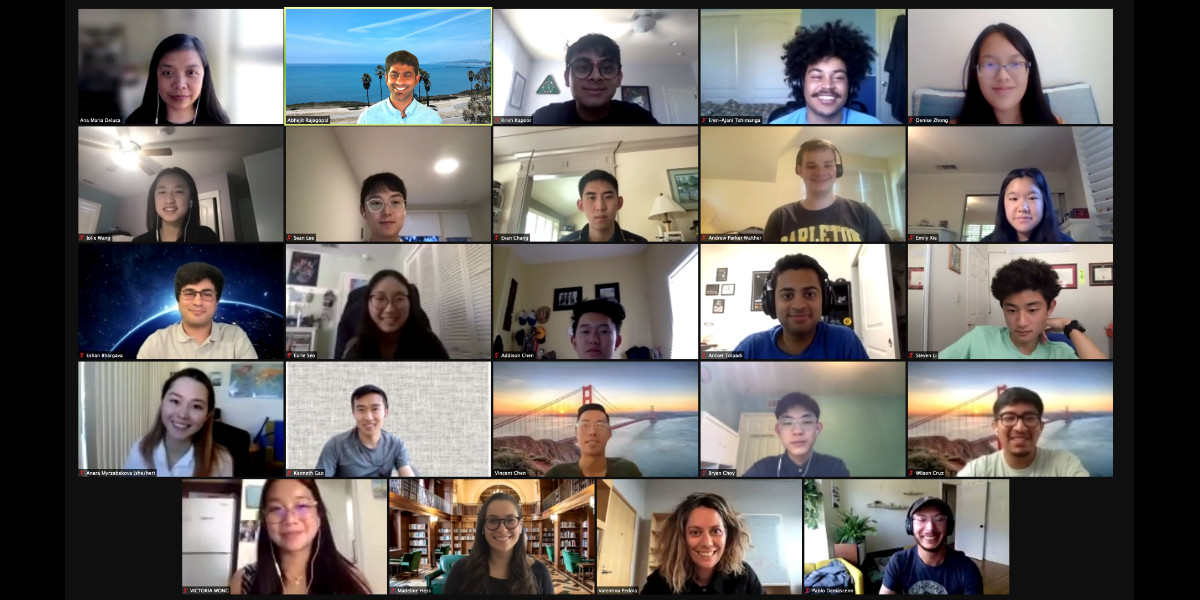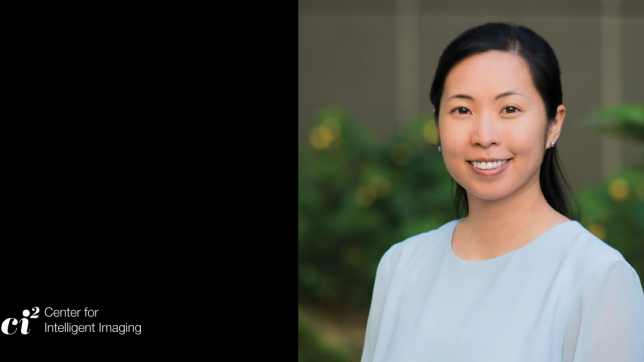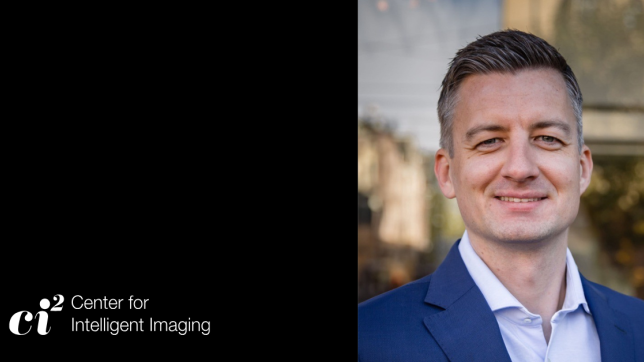
We know that emerging innovations in artificial intelligence (AI) have had – and will continue to have – an important impact on medicine. There is a growing interest from aspiring and future scientists and physicians in AI technology. All of this highlights the importance of starting early and systematically building a training pipeline which culminates with graduate and postdoctoral training along with exposure to industrial research practices and environment. This is the work of the Internship and Education Pillar, one of the Five Pillars[i] within UCSF's Center for Intelligent Imaging (ci2).
The team is led by Co-Chairs Valentina Pedoia, PhD and Andreas Rauschecker, MD, PhD, assistant professors at UCSF Radiology with Ana Maria Deluca serving as program coordinator. Other ci2 members that are part of this Pillar include John Mongan, MD, PhD, Pablo Damasceno, PhD, and Srikantan Nagarajan, PhD.
"We work with high school, undergraduate, graduate and professional students on two levels," says Dr. Pedoia. "First, we introduce them to AI technology, help them understand the role of AI in medicine, gauge their overall interest and help them answer the question: why do you want to work on AI in medicine?"
The second important part of their work is mentorship. "It's all about educating students on all possible pathways. Many of us at the ci2 come from diverse backgrounds. For example, I started with an engineering and technical background and moved into medicine, and others have the opposite experience. Sharing these different pathways demonstrates that there is no right or wrong choice – it's a really a hybrid."
We recently welcomed our summer 2021 interns – sixteen students from high school, undergraduate and graduate school who were chosen after an application and extensive review period. Interns are chosen based on their background, a graded rubric and overall readiness.
Interns kicked off the summer with a five-day coding bootcamp complete with engaging lectures, tutorials, and hands-on sessions. Each of our 16 interns is assigned a principal investigator (PI) for the summer. The assigned PIs design projects for the intern complete with a scope, and they will spend the summer developing something from beginning to end. Because the program is virtual due to COVID-19, we'll use communication tools such as Slack to build a community-like feel between interns, the Education Pillar team and mentors. There will also be meetings and socials to catch up and share progress and a symposium at the end of the summer where interns will present their work.
What's next? The summer internship is now in its second year, and the ci2 would like to continue fundraising to support more interns and bring in more resources to grow this program and provide opportunities for those underrepresented in medicine (URMs) including women, minorities and students from disadvantaged backgrounds.
Now, as restrictions lift and the number of cases go down, there is also an opportunity to connect in person and locally with students. This is definitely something that Dr. Pedoia says she would like to do, citing her background coming from a small village in Italy and studying engineering and medical computer science in her native county before coming to UCSF as a postdoctoral fellow and then faculty member. Sharing these experiences can be incredibly valuable and inspiring.
Check back with us on our website and on Twitter for more news and updates from the 2021 summer internship program, including more on our summer symposium.
[i] The other four ci2 Pillars: Science and Technology Resource Group (SRG), Computational Core, Clinical Deployment and Marketing and Communications.
The Education Pillar within UCSF's Center for Intelligent Imaging (ci2) works with aspiring and future scientists and physicians to mentor them and fully develop their interest in AI technology in medicine.



